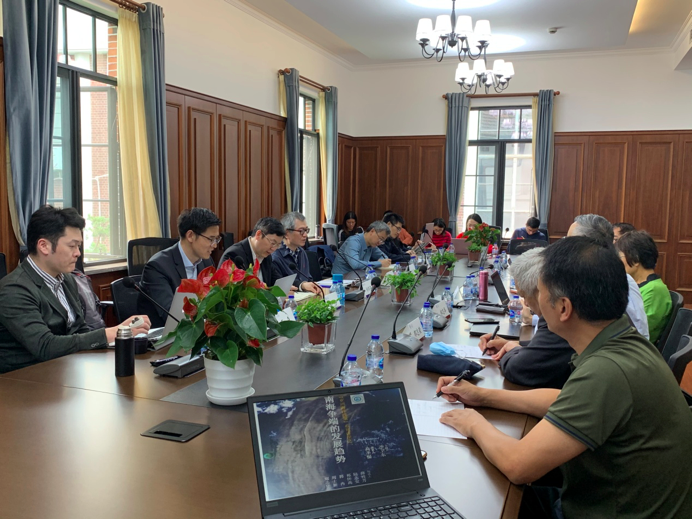Lecture 1 of a series of lectures on Asian maritime policy: the development trend of the South China Sea dispute
Text source:Release date:2020.10.15Times of browsing:
On the morning of October 15, 2020, the first lecture of the series of lectures "Asian Ocean Policy" by the Japan Research Center of Shanghai Jiao Tong University, "Development Trend of the South China Sea Dispute", was successfully held in Conference Room 206, the fourth floor of the north of Xuhui Campus. Professor Gao Shengti, the second class professor and doctoral supervisor of the Institute of International Law of the School of Law of Wuhan University, served as the keynote speaker. Professor Ji Weidong, a senior professor of liberal arts at Shanghai Jiaotong University and director of the Japan Research Center, presided over the lecture. Professor Xue Guifang, director of the Marine Rule of Law Research Center of Shanghai Jiaotong University, Lu Zhi'an, associate professor of the School of Law of Fudan University, and Qi Huaigao, Vice Dean of the Institute of International Studies of Fudan University were invited to the lecture, Professor Guo Ran of the School of Law of Shanghai Maritime University, Zhou Shixin, Deputy Researcher of the Foreign Policy Research Institute of the Shanghai Institute of International Studies, and Zheng Zhihua, Deputy Researcher of the Japan Research Center, served as interlocutors.
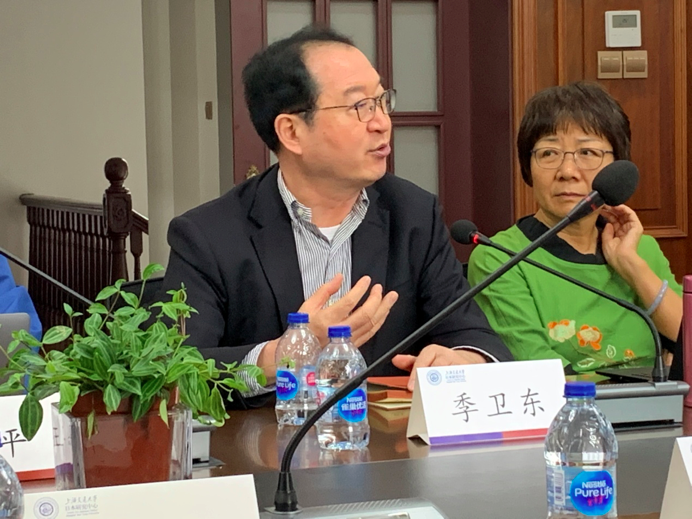
Professor Ji Weidong pointed out in his speech that the rise of China has brought some new changes to the international pattern. On the other hand, the United States and the United Kingdom, the original anchors of the stability of the global order, are also trying to promote some changes, bringing a huge impact on the post-war international architecture. Against this background, the South China Sea, as the intersection of the US Indo Pacific strategy and China's the Belt and Road Initiative, has become increasingly complex and contradictory. Professor Ji Weidong said that in the context of such a structural change, Professor Gao Shengti's systematic review and analysis of the development trend of the South China Sea dispute is of great significance for promoting research on Asian marine policy. He welcomed and thanked Professor Gao and other experts for their arrival and wished the meeting a complete success.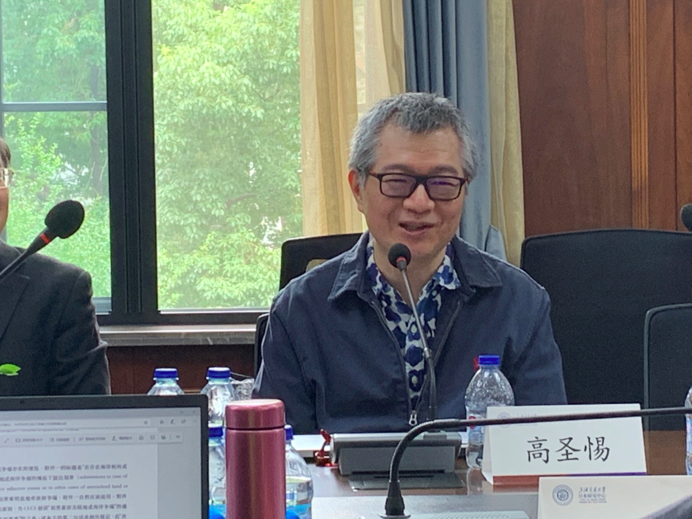 Later, Professor Gao Shengti encouraged countries in the region to carve up the South China Sea through think tanks from outside the region, how the South China Sea arbitration award helped neighboring countries carve up the South China Sea, how the South China Sea neighboring countries carve up the submarine natural resources in the central area of the South China Sea through the Commission on the Limits of the Continental Shelf, and the role of Taiwan in the South China Sea arbitration, systematically described the impact of the South China Sea arbitration case The future development trend of the South China Sea dispute and China's possible coping strategies. Professor Gao pointed out that the delimitation of the South China Sea area focuses on the exclusive economic zone and the continental shelf. However, influenced by the arbitration award in the South China Sea and encouraged by the Blue Print of CSIS, an American think-tank, other countries around the South China Sea are unlikely to allow China to use the the Nansha Islands and the Xisha Islands as a whole, or use the large islands of the the Nansha Islands and the Xisha Islands to claim the 200 mile exclusive economic zone and continental shelf and negotiate with them for delimitation. Professor Gao believes that the role played by Taiwan in the South China Sea arbitration case, whether it is to explain the property "inherited by the government" or to disagree with the Beijing government, reveals a message that the evidence, statements and actions put forward by the Taiwan authorities, which do not contradict the Philippines' claims or legal arguments, or even disagree with the position of the Beijing government, have been taken into consideration by the arbitration tribunal and deserve the vigilance of the mainland. On the other hand, the Taiwan authorities claimed "historical ownership", "historical waters", "territorial sovereignty", "inherent boundaries", etc. in the internal waters of the U-shaped line, and the most lethal evidence for the Philippines' claims and arguments was intentionally or unintentionally ignored by the arbitral tribunal. On the whole, the challenges facing China's sovereignty and jurisdiction claims in the South China Sea are far from over.
Later, Professor Gao Shengti encouraged countries in the region to carve up the South China Sea through think tanks from outside the region, how the South China Sea arbitration award helped neighboring countries carve up the South China Sea, how the South China Sea neighboring countries carve up the submarine natural resources in the central area of the South China Sea through the Commission on the Limits of the Continental Shelf, and the role of Taiwan in the South China Sea arbitration, systematically described the impact of the South China Sea arbitration case The future development trend of the South China Sea dispute and China's possible coping strategies. Professor Gao pointed out that the delimitation of the South China Sea area focuses on the exclusive economic zone and the continental shelf. However, influenced by the arbitration award in the South China Sea and encouraged by the Blue Print of CSIS, an American think-tank, other countries around the South China Sea are unlikely to allow China to use the the Nansha Islands and the Xisha Islands as a whole, or use the large islands of the the Nansha Islands and the Xisha Islands to claim the 200 mile exclusive economic zone and continental shelf and negotiate with them for delimitation. Professor Gao believes that the role played by Taiwan in the South China Sea arbitration case, whether it is to explain the property "inherited by the government" or to disagree with the Beijing government, reveals a message that the evidence, statements and actions put forward by the Taiwan authorities, which do not contradict the Philippines' claims or legal arguments, or even disagree with the position of the Beijing government, have been taken into consideration by the arbitration tribunal and deserve the vigilance of the mainland. On the other hand, the Taiwan authorities claimed "historical ownership", "historical waters", "territorial sovereignty", "inherent boundaries", etc. in the internal waters of the U-shaped line, and the most lethal evidence for the Philippines' claims and arguments was intentionally or unintentionally ignored by the arbitral tribunal. On the whole, the challenges facing China's sovereignty and jurisdiction claims in the South China Sea are far from over.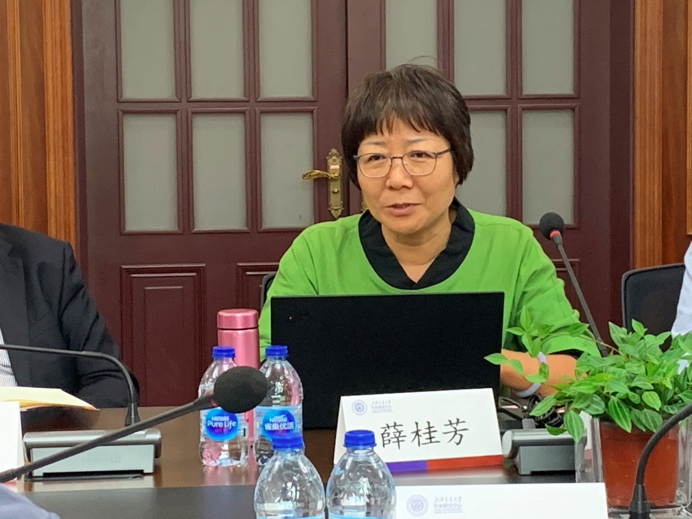 In the evaluation stage, Professor Xue Guifang believed that Professor Gao's lectures were thought-provoking from a high vantage point. What role can international law play, especially in international disputes such as territorial sovereignty and maritime delimitation? People often say that history is a "little girl" who can be dressed casually. However, in the South China Sea arbitration case, international law is like a "dumb boy" who is at the mercy of people and is worried about the future development of the South China Sea dispute.
In the evaluation stage, Professor Xue Guifang believed that Professor Gao's lectures were thought-provoking from a high vantage point. What role can international law play, especially in international disputes such as territorial sovereignty and maritime delimitation? People often say that history is a "little girl" who can be dressed casually. However, in the South China Sea arbitration case, international law is like a "dumb boy" who is at the mercy of people and is worried about the future development of the South China Sea dispute.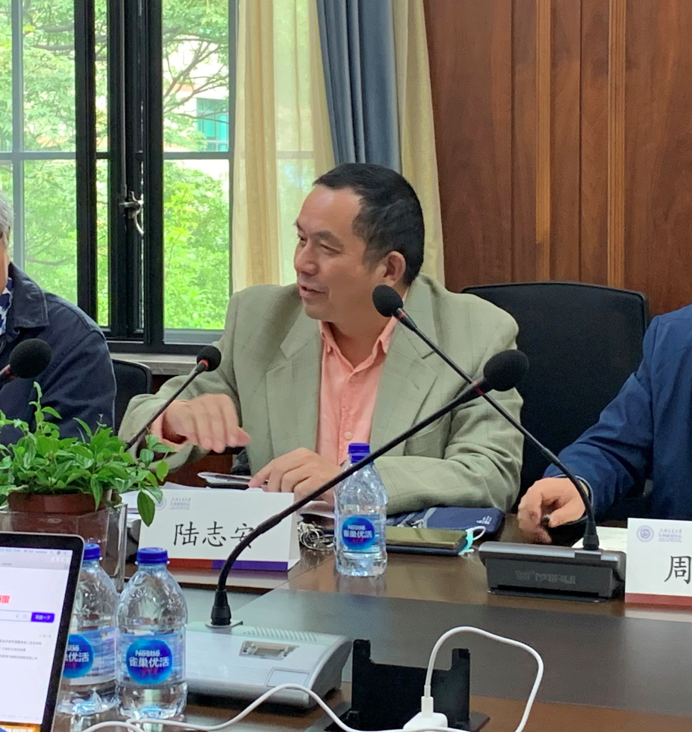 Professor Lu Zhi'an believes that from Professor Gao's lecture, we can clearly observe that the South China Sea issue needs a more open and comprehensive thinking and research, which not only involves the law of the sea, nor is it just a question of historical rights, but also involves government succession, a country's constitutional system, international law and the status quo. Only in this way can we have a comprehensive and accurate understanding of the legitimacy and legitimacy of the arbitral award and the actions of all parties.
Professor Lu Zhi'an believes that from Professor Gao's lecture, we can clearly observe that the South China Sea issue needs a more open and comprehensive thinking and research, which not only involves the law of the sea, nor is it just a question of historical rights, but also involves government succession, a country's constitutional system, international law and the status quo. Only in this way can we have a comprehensive and accurate understanding of the legitimacy and legitimacy of the arbitral award and the actions of all parties.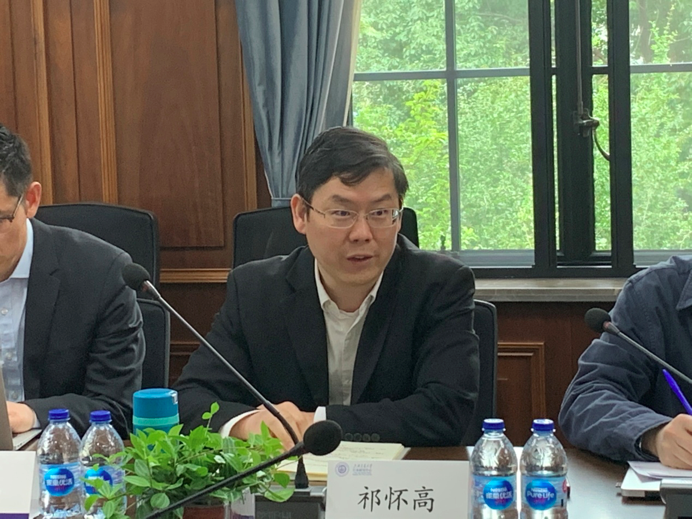 Vice Dean Qi Huaigao raised five questions. For example, Taiwan claims maritime rights with a single island or reef, such as Taiping Island, while the mainland claims rights with Nansha and Xisha as a whole. Will this difference affect the rights protection in the South China Sea; Is Ma Ying jeou's speech at the opening ceremony of the special exhibition of historical materials in southern Xinjiang likely to be the effect of loosening China's position on the South China Sea in the future; The discontinuous line has been slightly adjusted in different periods, and what is the policy significance of such adjustment; With regard to the application for delimitation of the outer continental shelf of Malaysia, if other countries, such as the Philippines, do not raise objections, and China cannot stop it, what will be the impact of entering the committee's vote; And how the CSIS Report will affect the negotiation of the South China Sea Code of Conduct.
Vice Dean Qi Huaigao raised five questions. For example, Taiwan claims maritime rights with a single island or reef, such as Taiping Island, while the mainland claims rights with Nansha and Xisha as a whole. Will this difference affect the rights protection in the South China Sea; Is Ma Ying jeou's speech at the opening ceremony of the special exhibition of historical materials in southern Xinjiang likely to be the effect of loosening China's position on the South China Sea in the future; The discontinuous line has been slightly adjusted in different periods, and what is the policy significance of such adjustment; With regard to the application for delimitation of the outer continental shelf of Malaysia, if other countries, such as the Philippines, do not raise objections, and China cannot stop it, what will be the impact of entering the committee's vote; And how the CSIS Report will affect the negotiation of the South China Sea Code of Conduct.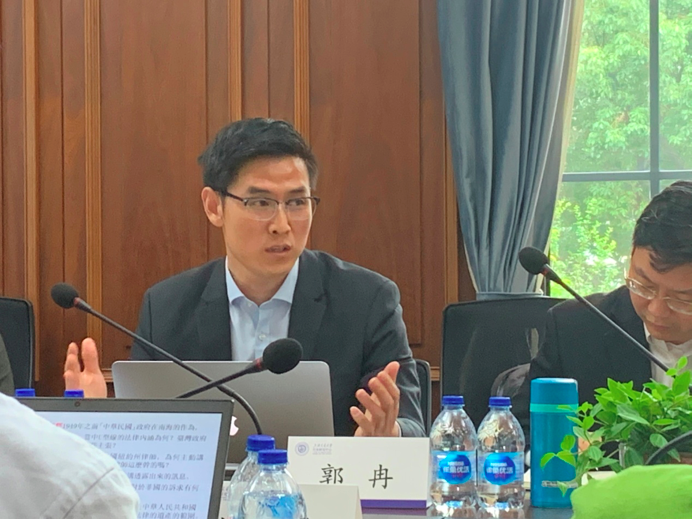 From the perspective of international law practice, Professor Guo Ran proposed that the research on the composition of historical ownership or historical rights in general international law should be strengthened. In addition, the research on the evidence related to these constituent elements also needs to be strengthened. He believed that only by strengthening the research on the major premise and the minor premise at the same time can we effectively safeguard national maritime rights and interests.
From the perspective of international law practice, Professor Guo Ran proposed that the research on the composition of historical ownership or historical rights in general international law should be strengthened. In addition, the research on the evidence related to these constituent elements also needs to be strengthened. He believed that only by strengthening the research on the major premise and the minor premise at the same time can we effectively safeguard national maritime rights and interests.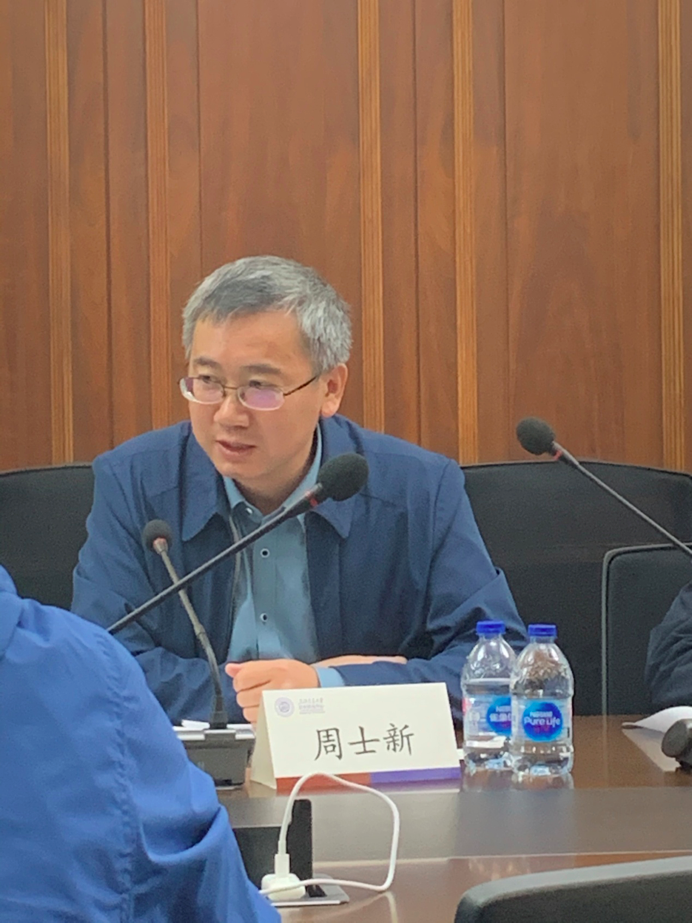 Researcher Zhou Shixin believes that the role of international law should be examined in the context of international relations. The South China Sea arbitration award is the product of the international order dominated by the United States, reflecting the interests of the United States and a hegemonic will of the United States as the leader of the international order. It is obviously a bending of international law for the Philippines to initiate unilateral arbitration without exhausting diplomatic channels. International law lags behind the international order to a certain extent. The international order has changed, but international law may not be able to reflect immediately, which is easy to be used by small countries.
Researcher Zhou Shixin believes that the role of international law should be examined in the context of international relations. The South China Sea arbitration award is the product of the international order dominated by the United States, reflecting the interests of the United States and a hegemonic will of the United States as the leader of the international order. It is obviously a bending of international law for the Philippines to initiate unilateral arbitration without exhausting diplomatic channels. International law lags behind the international order to a certain extent. The international order has changed, but international law may not be able to reflect immediately, which is easy to be used by small countries.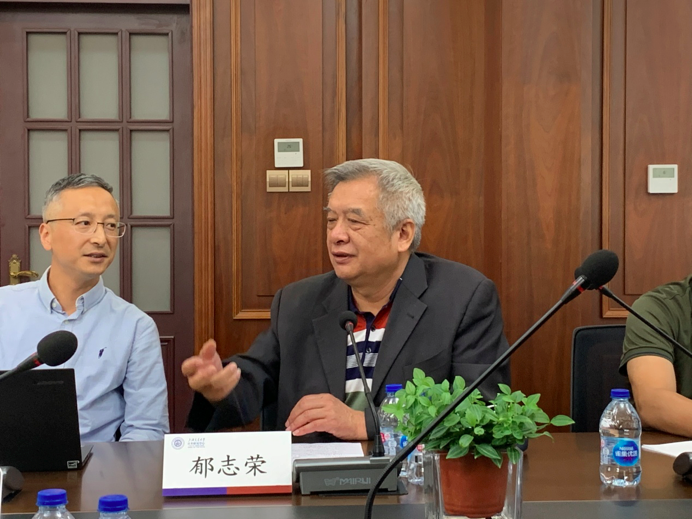 Researcher Yu Zhirong believes that relevant applied research should be strengthened from the perspective of maritime law enforcement to provide legal support, especially to clarify the legal status of the discontinuous line in the South China Sea to create a favorable environment for maritime law enforcement. The illegality of arbitration in the Philippines should be thoroughly exposed and criticized to prevent it from further fermenting.
Researcher Yu Zhirong believes that relevant applied research should be strengthened from the perspective of maritime law enforcement to provide legal support, especially to clarify the legal status of the discontinuous line in the South China Sea to create a favorable environment for maritime law enforcement. The illegality of arbitration in the Philippines should be thoroughly exposed and criticized to prevent it from further fermenting.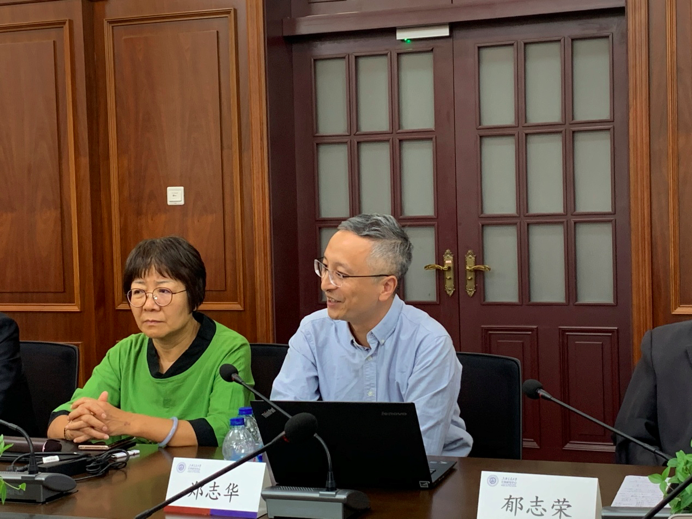 Finally, Associate Researcher Zheng Zhihua made a brief summary of the meeting. He said that Professor Gao Shengti's lecture was very exciting and enlightening. The South China Sea issue is not only a regional issue between China and relevant coastal countries in the South China Sea, but also involves contradictions and conflicts with major countries outside the region. However, the root of the problem lies in the fact that the island reefs are occupied and maritime rights and interests are eroded due to the lack of reunification of the country, the contradiction and partition between the two sides of the Straits. He expressed his heartfelt thanks to Professor Gao Shengti and the guests for their wonderful speeches and talks, and looked forward to your continued support for the relevant academic activities of the Japan Research Center in the future.
Finally, Associate Researcher Zheng Zhihua made a brief summary of the meeting. He said that Professor Gao Shengti's lecture was very exciting and enlightening. The South China Sea issue is not only a regional issue between China and relevant coastal countries in the South China Sea, but also involves contradictions and conflicts with major countries outside the region. However, the root of the problem lies in the fact that the island reefs are occupied and maritime rights and interests are eroded due to the lack of reunification of the country, the contradiction and partition between the two sides of the Straits. He expressed his heartfelt thanks to Professor Gao Shengti and the guests for their wonderful speeches and talks, and looked forward to your continued support for the relevant academic activities of the Japan Research Center in the future.









